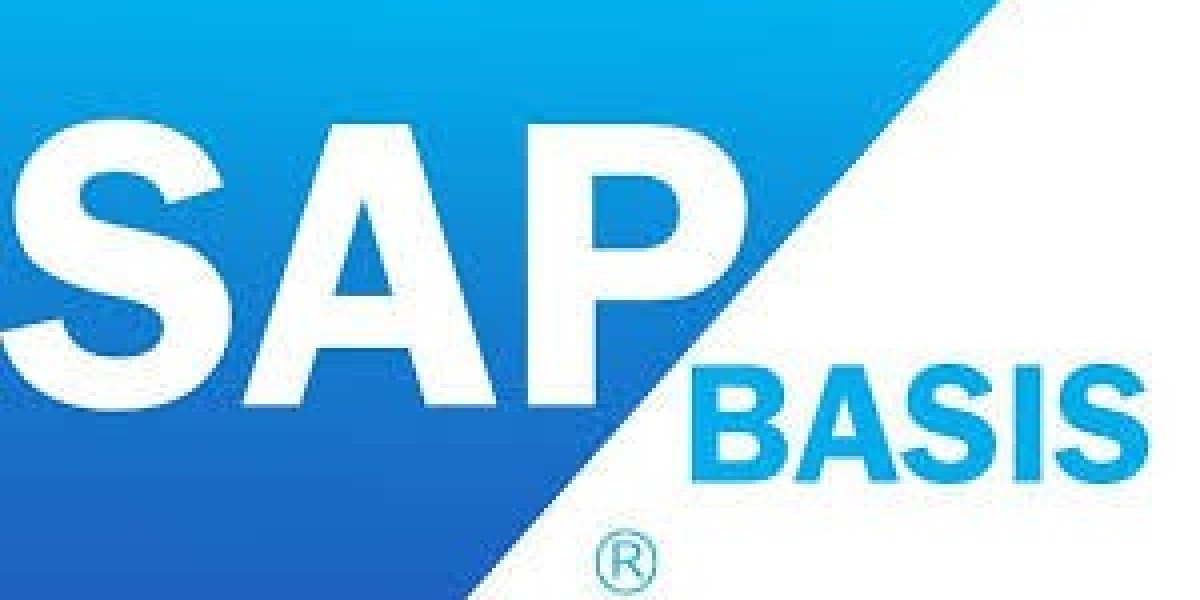In the ever evolving landscape of enterprise technology, system administration has emerged as one of the most critical and rewarding career paths in the Indian IT industry. As businesses increasingly rely on complex enterprise systems to manage their operations, the demand for skilled technical professionals who can maintain, optimize, and troubleshoot these systems has skyrocketed. Mumbai, being India's financial hub, and Pune, recognized as a major IT destination, offer exceptional opportunities for professionals looking to specialize in enterprise system administration and technical infrastructure management for sap basis classes in pune.
The field of enterprise system administration encompasses a wide range of responsibilities, from server management and database optimization to system security and performance monitoring. Professionals in this domain serve as the backbone of organizational IT infrastructure, ensuring that critical business systems remain operational, secure, and efficient. This specialization has become increasingly valuable as companies recognize that system downtime can result in significant financial losses and operational disruptions.
Understanding Enterprise System Administration and Its Importance
Enterprise system administration involves managing the technical foundation that supports business critical applications and processes. When you pursue sap basis classes in mumbai, you're learning to handle one of the most widely deployed enterprise platforms globally. This specialized field focuses on system installation, configuration, maintenance, monitoring, and optimization of complex business environments.
The role of a system administrator extends beyond basic technical maintenance. These professionals are responsible for ensuring system availability, implementing security measures, managing user access, performing system upgrades, and troubleshooting complex technical issues. They work closely with application developers, database administrators, and business users to ensure that enterprise systems meet organizational requirements and performance standards.
Modern enterprises depend heavily on their IT infrastructure to maintain competitive advantage and operational efficiency. System administrators play a crucial role in digital transformation initiatives, cloud migrations, and system integrations that enable businesses to adapt to changing market conditions. Their expertise is essential for maintaining system reliability, implementing best practices, and ensuring compliance with industry standards and regulations.
Training Ecosystem in Maharashtra's Technology Centers
Maharashtra's position as a leading technology destination has fostered the development of a robust ecosystem for technical training and professional development. The state's concentration of multinational corporations, IT services companies, and consulting firms creates a natural demand for skilled system administrators, leading to the establishment of high quality training institutes and certification programs.
Mumbai's status as India's commercial capital attracts top tier training providers who understand the specific needs of the enterprise technology market. The city's diverse business environment, ranging from financial services to manufacturing, provides trainees with exposure to various industry scenarios and use cases. Many institutes offering sap basis classes in mumbai have developed strong partnerships with leading organizations, ensuring that their curriculum remains current with industry trends and requirements.
Pune's emergence as an IT hub has similarly contributed to the growth of specialized training programs in system administration. The city's educational infrastructure, combined with its concentration of technology companies, creates an ideal environment for learning and career development. Students often find that the practical orientation of training programs in Pune, along with the city's lower cost of living compared to Mumbai, makes it an attractive destination for professional development.
The training landscape in both cities is characterized by a focus on hands on learning, real world projects, and industry relevant curriculum. Many institutes maintain dedicated labs with latest software versions and hardware configurations, allowing students to gain practical experience with enterprise grade systems and tools.
various Curriculum and Skill Development
Modern system administration training programs are designed to provide various coverage of technical concepts, practical skills, and industry best practices. A typical curriculum includes system architecture fundamentals, installation and configuration procedures, monitoring and maintenance techniques, security implementation, and troubleshooting methodologies.
Students learn to work with various operating systems, database platforms, and enterprise applications. The training covers critical areas such as system performance optimization, backup and recovery procedures, user management, and system integration. Advanced modules often include topics like high availability configurations, disaster recovery planning, and cloud platform management.
The learning methodology in reputable sap basis classes in pune emphasizes practical application alongside theoretical knowledge. Students work on simulated business environments, perform system installations, configure complex scenarios, and troubleshoot realistic problems. This hands on approach ensures that graduates are immediately productive in professional environments and can handle the challenges of enterprise system management.
Many programs also include soft skills training, as system administrators often need to communicate with business users, manage projects, and work in cross functional teams. The ability to translate technical concepts into business language and collaborate effectively with diverse stakeholders is increasingly important in modern IT organizations.
Career Opportunities and Professional Growth
The career prospects for skilled system administrators are excellent, with opportunities spanning multiple industries and organizational types. Entry level positions typically involve system monitoring, basic maintenance tasks, and user support under supervision. As professionals gain experience, they can progress to roles involving system design, project management, and strategic technology planning.
The consulting sector offers particularly attractive opportunities for experienced system administrators. Many professionals choose to work with consulting firms or become independent contractors, providing specialized services to multiple clients. This career path often offers higher compensation, diverse project experiences, and the flexibility to work on cutting edge technologies and implementations.
Large enterprises, government organizations, and technology companies all require skilled system administrators to maintain their critical infrastructure. The global nature of many businesses means that experienced professionals often have opportunities for international assignments, remote work arrangements, and exposure to diverse business environments and technical challenges.
The field also offers natural progression paths into related areas such as cloud architecture, cybersecurity, and IT management. The foundational knowledge gained through various training provides a solid base for specialization in emerging technology areas and leadership roles within IT organizations.
Selecting the Right Training Program
Choosing an appropriate training program is crucial for success in the field of system administration. When evaluating options for sap basis classes in mumbai, consider factors such as instructor expertise, curriculum various, laboratory facilities, industry partnerships, and placement assistance. Look for programs taught by professionals with extensive real world experience in enterprise environments.
The quality of training infrastructure significantly impacts the learning experience. Modern computer labs, access to current software versions, and realistic simulation environments are essential for developing practical skills. Some institutes offer flexible scheduling options, including evening and weekend classes, which can accommodate working professionals seeking to enhance their skills.
Industry connections and placement support are important considerations when selecting a training program. Institutes with strong relationships with employers often provide better internship opportunities, job placements, and career guidance. They typically have insights into current market demands and can adjust their curriculum to meet evolving industry requirements.
Certification support is another valuable aspect of quality training programs. Many institutes provide preparation for industry recognized certifications, which can significantly enhance career prospects and earning potential. The combination of various training and professional certifications creates a strong foundation for career advancement.
Investment Considerations and Career Returns
The financial investment required for professional system administration training varies based on program duration, institute reputation, and additional services provided. While the initial cost may seem substantial, it's important to consider the long term career benefits and earning potential in this field. Most graduates find that their training investment pays for itself within the first year of employment.
Many training institutes offer flexible payment options, including installment plans and partnerships with financial institutions for education loans. Some employers recognize the value of system administration skills and may sponsor employee training as part of professional development initiatives. Various government programs also support skill development in technology areas.
The career returns from quality training extend beyond immediate employment opportunities. The skills acquired provide a foundation for continuous professional growth, entrepreneurial opportunities, and specialization in high demand technology areas. Many successful IT professionals attribute their career success to the solid technical foundation provided by various system administration training.
Frequently Asked Questions
1. What educational background is required for system administration training programs?
Most institutes offering sap basis classes in pune accept candidates with basic computer science or information technology education. A bachelor's degree in engineering, computer applications, or science is typically preferred, though many programs also accommodate candidates from other educational backgrounds who demonstrate technical aptitude. Some institutes offer foundation courses for candidates who need to strengthen their technical fundamentals before beginning specialized training.
2. How long does it take to complete a various system administration training program?
Standard system administration training programs typically range from 3 to 6 months, depending on the depth of coverage and learning format. Intensive full time programs can be completed in shorter durations, while part time or weekend options may extend to 8 months. Advanced certification programs that include specialized modules and practical projects may require up to a year for completion.
3. What salary expectations are realistic after completing system administration training?
Entry level system administrators from reputable sap basis classes in mumbai can expect starting salaries between 4 to 8 lakhs per annum, depending on their educational background, training quality, and hiring organization. With 2 to 3 years of experience, professionals typically see salaries increase to 8 to 16 lakhs per annum. Senior administrators and consultants often command significantly higher compensation packages.
4. Are there opportunities for career specialization within system administration?
Yes, system administration offers numerous specialization opportunities including cloud platforms, security management, database administration, and performance optimization. Many professionals also specialize in specific industry verticals such as finance, healthcare, or manufacturing. The foundational skills provide a pathway to roles in solution architecture, project management, and IT strategy.
5. What are the prospects for remote work in system administration?
Remote work opportunities in system administration have increased significantly, especially with the adoption of cloud technologies and remote monitoring tools. Many organizations now support hybrid work arrangements for system administrators, particularly those with proven expertise and strong communication skills. However, some roles may require on site presence for hardware related tasks and critical system maintenance.
Advantages of Pursuing System Administration Training
• High Industry Demand: Organizations across all sectors require skilled system administrators to maintain their critical IT infrastructure, ensuring consistent job availability and career security.
• Competitive Compensation: System administration roles typically offer attractive salary packages with excellent growth potential based on experience and specialized skills.
• Technical Skill Development: The field provides opportunities to work with cutting edge technologies, enterprise systems, and emerging platforms, ensuring continuous learning and skill enhancement.
• Career Stability: The critical nature of system administration in business operations provides excellent job security and protection against economic fluctuations.
• Diverse Industry Exposure: Skills are applicable across multiple industries including finance, healthcare, manufacturing, and government, providing career flexibility and variety.
• Consulting Opportunities: Experienced professionals can leverage their expertise to become independent consultants, offering specialized services and enjoying professional autonomy.
• Global Career Potential: The universal nature of enterprise systems creates opportunities for international assignments and global career development.
• Leadership Pathway: System administration experience provides a strong foundation for progression into IT management, solution architecture, and strategic technology roles.
Disadvantages to Consider
• High Responsibility Pressure: System administrators are responsible for critical business systems, which can create high pressure situations and significant accountability for system availability.
• Irregular Working Hours: System maintenance, upgrades, and emergency troubleshooting often require work during off hours, weekends, and holidays, impacting work life balance.
• Continuous Learning Requirement: Rapid technology evolution requires ongoing training and certification updates to maintain relevance and competitiveness in the market.
• Complex Problem Solving: System issues can be complex and time consuming to resolve, requiring patience, analytical skills, and persistence under pressure.
• On Call Responsibilities: Many positions require on call availability for system emergencies, which can disrupt personal time and require immediate response capabilities.
• Physical Infrastructure Dependency: Some aspects of system administration require on site presence for hardware management, limiting remote work flexibility in certain situations.
• Vendor Technology Dependence: Career prospects may be influenced by the market performance and strategic direction of specific technology vendors and platforms.
• Initial Training Investment: Quality training programs require significant financial and time investments, which may be challenging for some individuals to manage.
Future Trends and Technology Evolution
The field of system administration is experiencing significant transformation due to cloud computing, automation, and artificial intelligence technologies. Modern system administrators are increasingly working with cloud platforms, containerized applications, and automated deployment tools. This evolution creates exciting opportunities for professionals who stay current with emerging technologies and adapt their skills accordingly.
The shift toward DevOps practices and infrastructure as code is changing traditional system administration roles, requiring professionals to develop skills in automation, scripting, and continuous integration processes. Those who embrace these changes and develop hybrid skill sets combining traditional system administration with modern DevOps practices will find themselves in high demand.
Cybersecurity integration is becoming increasingly important in system administration roles, as organizations recognize the need for security conscious infrastructure management. Professionals who develop expertise in security frameworks, compliance requirements, and risk management will have enhanced career opportunities and earning potential.
When considering sap basis classes in mumbai or other major cities, it's important to choose programs that prepare students for these evolving trends while maintaining strong foundations in core system administration principles. The most successful professionals will be those who combine solid technical fundamentals with adaptability and continuous learning mindset.
System administration offers a rewarding career path for individuals who enjoy technical challenges, problem solving, and playing a critical role in organizational success. With proper training, continuous skill development, and adaptation to emerging trends, professionals in this field can build stable, lucrative, and fulfilling careers in the technology industry.






